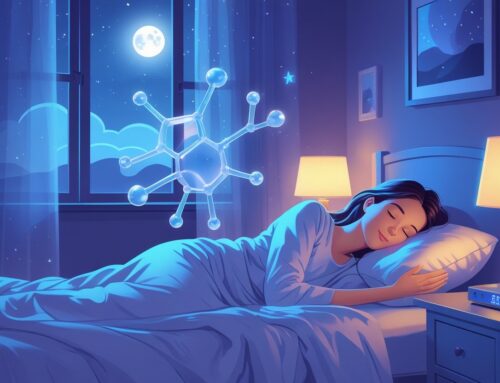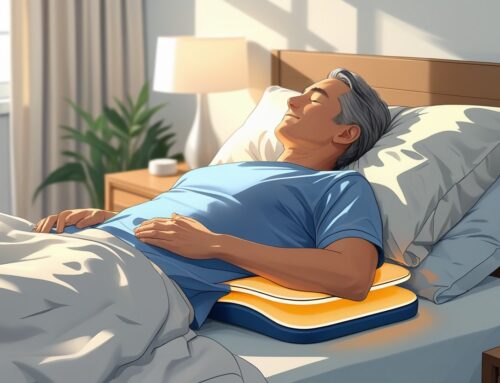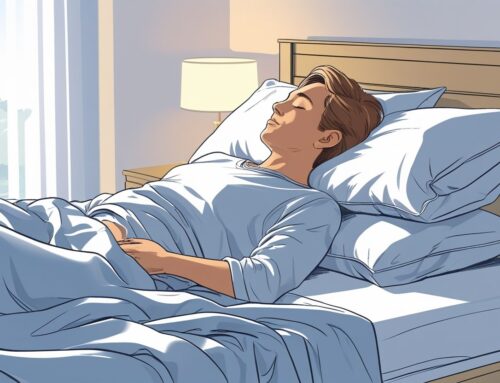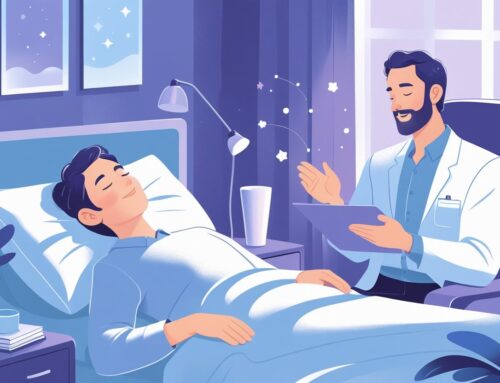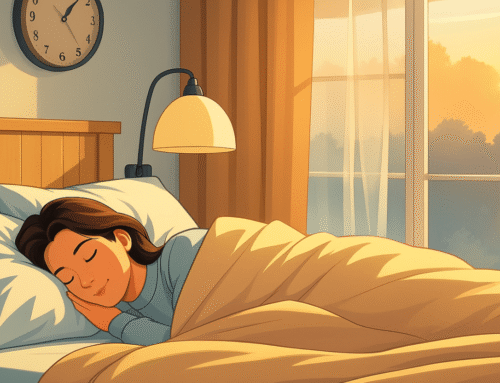Fasting has become popular because it supports weight control and may improve how the body uses energy. But what happens to sleep when you change the way you eat? Some people find that fasting helps them rest better by matching meal times with their natural body clock. For others, the effect is different, and the results depend on the person and the type of fasting they follow.
Eating within a set time frame, like with time-restricted eating, can give the body a rhythm that encourages better sleep. Still, fasting can sometimes lead to hunger or added stress, and that may keep certain people awake. The outcome usually depends on when the fast starts, how long it lasts, and the person’s general health.
Looking at the link between fasting and sleep helps people decide what kind of eating schedule works best for them. This is especially useful for anyone fasting to support their health or for those who already find sleep hard to manage.
Key Takeaways
- Fasting may support better sleep by keeping the body’s rhythm steady.
- Hunger or stress from fasting can interrupt rest.
- Timing and personal health play a big role in the effect on sleep.
- During fasting, the right mattress provides support, pressure relief, and cooling comfort that help the body rest deeply despite changes in hunger and energy.
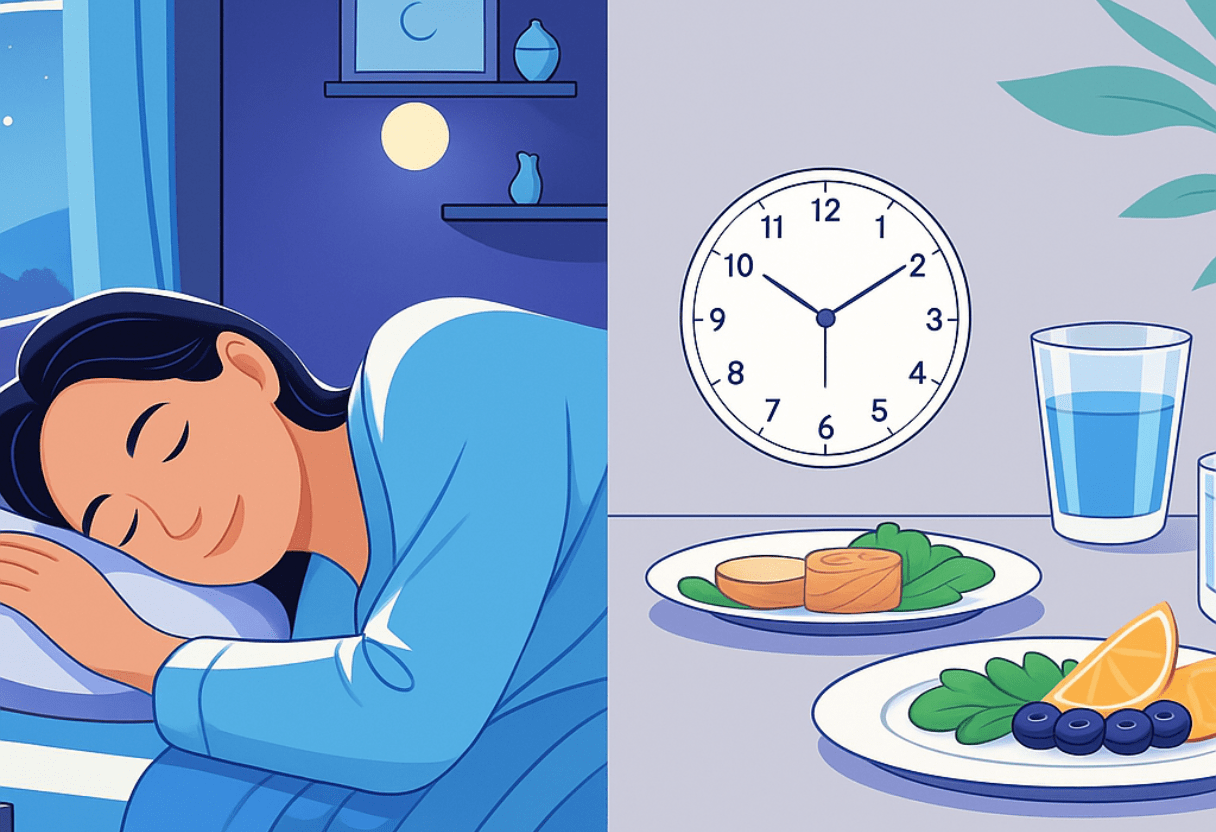
How Fasting Affects Sleep
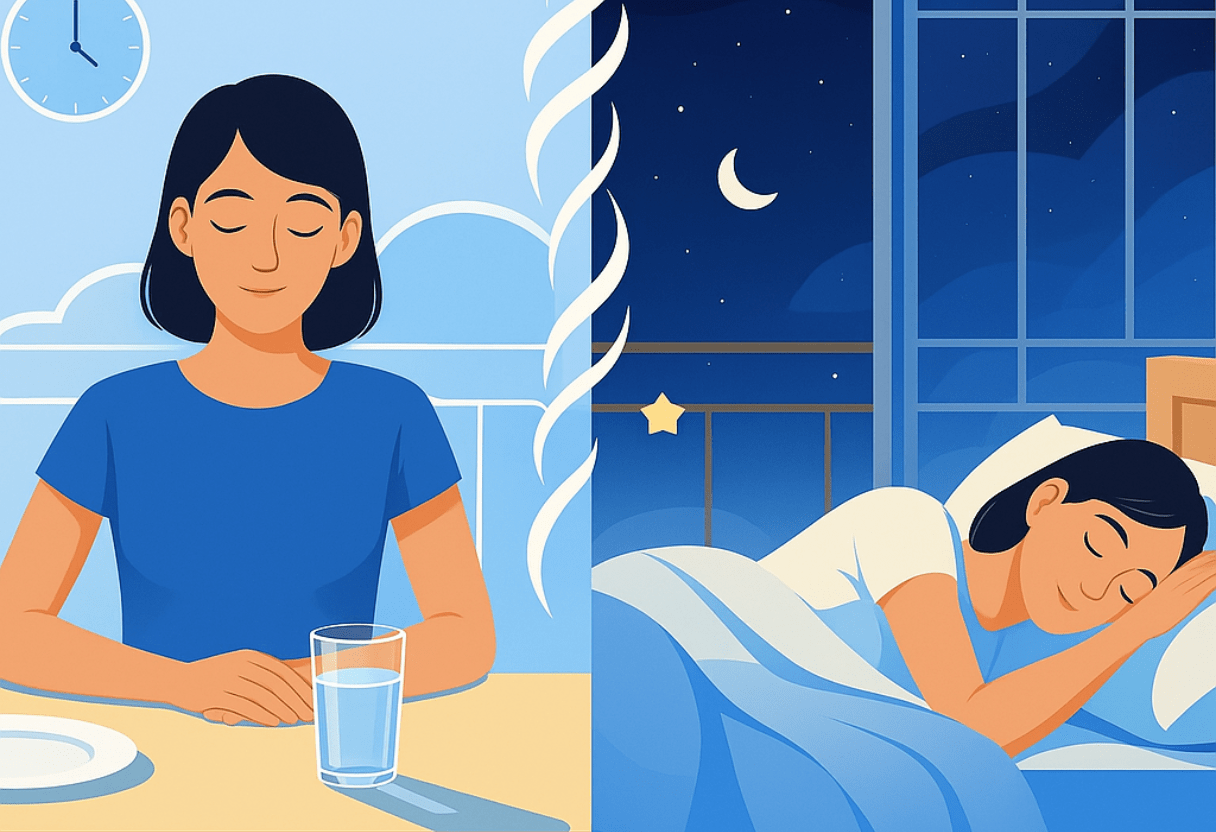
Fasting affects sleep in many ways, both biological and behavioral. The impact is not the same for everyone. Some people sleep better while fasting, while others struggle with falling asleep or staying alert during the day. The outcome depends on the fasting schedule, weight changes, and how each person responds.
Mechanisms Linking Fasting and Sleep Regulation
Fasting can shift the body’s internal clock, also called the circadian rhythm. Eating only within set hours can strengthen daily rhythms and help the body align its natural processes with sleep and wake cycles. This connection between food timing and sleep is one reason fasting can influence rest.
Weight loss through fasting may also improve sleep. Losing fat around the neck can ease breathing at night and reduce the risk of sleep apnea. For people who are overweight, this may lead to deeper, longer sleep. Hormones add another layer. Hunger-related hormones like ghrelin and stress-related hormones such as cortisol change during fasting. These shifts can either support better rest or interrupt it, depending on the timing and how sensitive someone is to these changes.
Fasting Insomnia: Causes and Prevalence
Some people deal with insomnia while fasting. This can show up as trouble falling asleep, waking up too early, or struggling to stay asleep. Hunger and stress from fasting can both play a role in these disruptions.
The timing of fasting matters. Going without food late in the evening or skipping dinner can interfere with normal sleep patterns. Stress hormones may rise and make it harder to relax at night. Still, not everyone gets insomnia during fasting. Sleep history, fasting style, and lifestyle all influence whether fasting leads to insomnia.
Does Fasting Cause Tiredness?
Fatigue during fasting is common, especially in the beginning. Eating fewer calories and changes in blood sugar can lower energy levels. As the body adjusts, many people notice this tiredness starts to fade.
In the long run, weight loss from fasting may improve energy levels by reducing sleep apnea symptoms. But if fasting disrupts sleep, tiredness can continue or even get worse. Hydration, stress, and general sleep habits also affect energy. Paying attention to these areas while fasting can help reduce daytime fatigue and keep energy levels steady.
Intermittent Fasting and Sleep Quality
Intermittent fasting is a way of cycling between periods of eating and fasting. The timing of meals and changes in calorie intake can affect a person’s sleep. For some, it improves rest. For others, it may cause trouble falling asleep.
Common Intermittent Fasting Schedules
Two well-known approaches are Time-Restricted Eating (TRE) and Alternate Day Fasting (ADF).
- Time-Restricted Eating (TRE): Eating is limited to a daily window, usually between 4 and 10 hours. For example, someone may only eat between 10 a.m. and 6 p.m., then fast the rest of the time.
- Alternate Day Fasting (ADF): This alternates between a low-calorie day of about 600 calories and a normal eating day. This stretches calorie reduction across longer periods.
Both methods can lead to weight loss, which sometimes impacts sleep. TRE is linked to a 3-5% reduction in body weight, while ADF may result in a 3–7% loss over several months.
Intermittent Fasting Sleep Benefits
Fasting may support the body’s natural circadian rhythm. Eating less at night helps align the internal clock that controls when we feel awake or sleepy.
Weight loss from fasting also has an impact. For example, dropping excess weight can ease symptoms of sleep apnea and improve overall rest. Studies show that people without existing sleep issues don’t experience major changes, but some notice small improvements. Some individuals feel more refreshed and experience fewer disruptions in their sleep when they cut back on late-night meals.
Can Intermittent Fasting Cause Insomnia?
For most people, fasting does not directly cause insomnia. But results may vary. Hunger or stress during fasting may delay sleep, especially in the beginning. This usually eases as the body gets used to the schedule. Those with existing sleep problems should be careful and may want to consult a doctor before starting, since most research so far looked at people with no sleep disorders.
Factors that can affect sleep during fasting
- Hunger during fasting: may cause trouble falling asleep
- Weight loss: may ease sleep apnea and improve rest
- Timing of eating window: may support circadian rhythm
- Preexisting sleep problems: effects are unclear, so caution is recommended
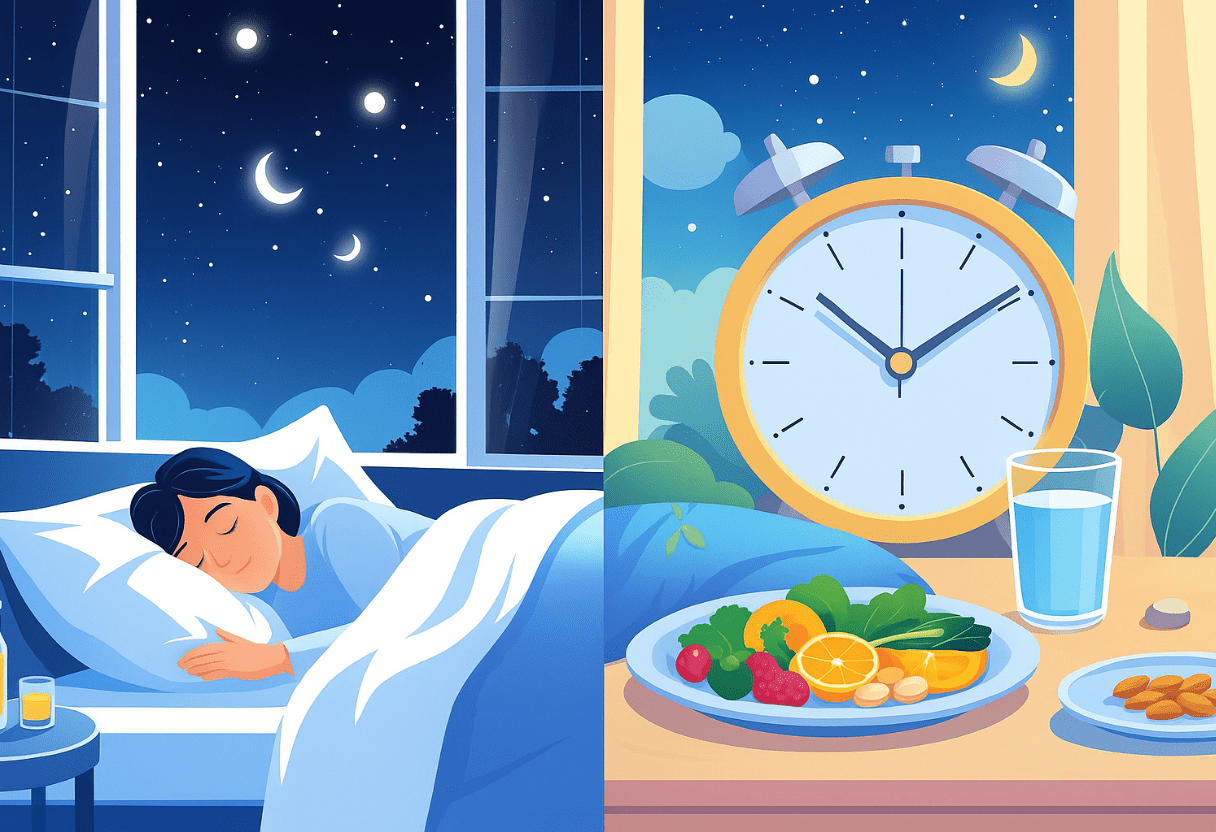
Impact of Fasting Timing on Nighttime Rest
Eating right before bed can disrupt sleep, while leaving a gap between meals and rest can help the body relax. Sleep itself also fits into fasting, which changes how energy is managed overnight.
Fasting Before Bed: Effects on Sleep Onset
Fasting before bed usually means skipping food a few hours before sleep. This gives digestion time to settle, which can make it easier to fall asleep. When the stomach isn’t busy breaking down a heavy meal, the body can focus on producing melatonin, the hormone that signals rest.
Late-night eating can raise insulin levels and interfere with the natural rhythm of sleep. It can also affect orexin-A, a chemical in the brain that keeps energy balanced between day and night. Many people who avoid food before bed notice it’s easier to drift off and they wake up less during the night. That said, long stretches of fasting right before bed, like several days without food, may lead to restlessness because hunger keeps the brain alert. Shorter fasts are usually more helpful for steady, restorative sleep.
Does Sleeping Count as Fasting?
Yes, sleep is generally part of a fasting window. Since no food is eaten while sleeping, the fasting period continues through the night. For people following time-restricted eating, this resting period makes up an important part of their fasting hours. During sleep, the body conserves energy and handles processes that support repair and hormone balance. These natural functions strengthen the benefits of fasting.
Experts point out that energy levels in the morning depend on how well fasting and sleep line up. When the timing is right, the body transitions smoothly through the night, which can support both weight control and metabolic health.
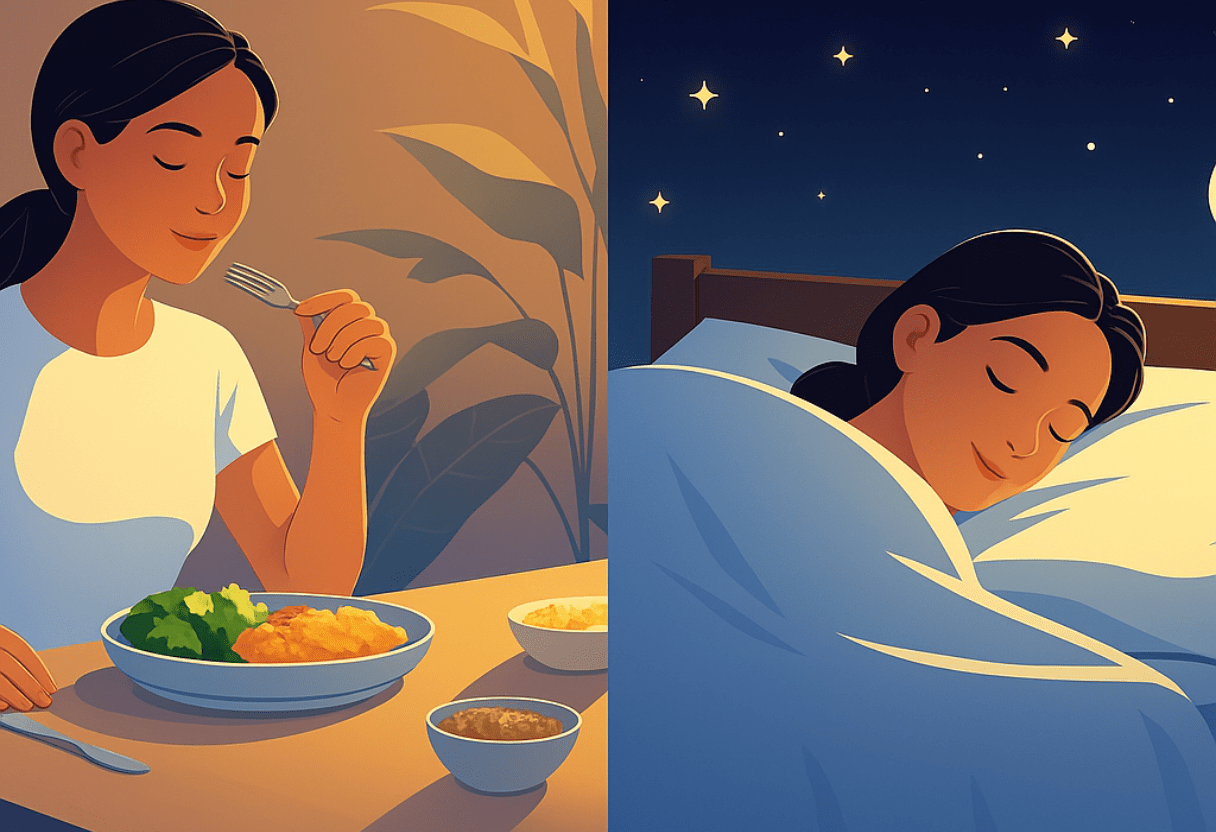
Fasting During Religious Observances and Sleep Patterns
Fasting for religious reasons changes daily life in many ways. Meal times shift, prayer schedules move, and sleep is usually the first thing affected. If sleep drops too much, it can impact mood and energy. That’s why managing these changes is important.
Ramadan Fasting and Sleep Disruptions
During Ramadan, the day runs differently. Eating is limited to hours before sunrise and after sunset, so people stay up later at night and wake up earlier in the morning. That change can cut down total sleep by an hour or more.
Studies show bedtime moves later, and nighttime rest gets shorter. Naps during the day help fill the gap, but schedules can still feel off balance. For many, the first days bring some trouble with sleep, but as the month goes on, the body usually adjusts. Work that starts later or night prayers can stretch the day even longer, which adds to the disruption.
Strategies for Managing Sleep During Religious Fasting
The best way to handle these shifts is to be steady with sleep times as much as possible. Getting a full block of rest before fasting begins helps with focus and energy through the day.
Tips include:
- Keep naps short, no longer than 20–30 minutes.
- Avoid heavy meals or caffeine right before bed.
- Sleep in a quiet, dark place for better rest.
- Shift evening activities so there’s still time to sleep, even with social or religious events.
Drinking enough water during non-fasting hours also helps. With a little planning, it’s possible to balance the demands of fasting with healthy sleep.
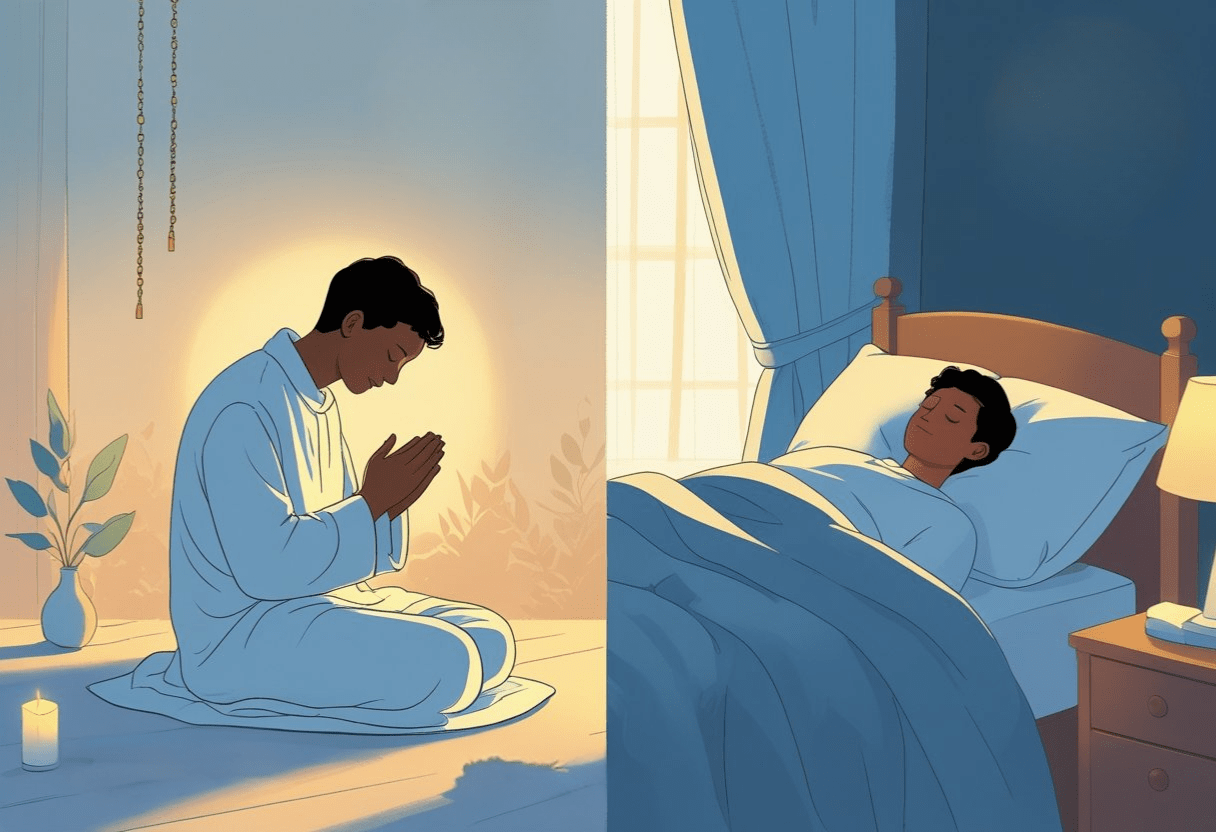
Managing Sleep Challenges When Fasting
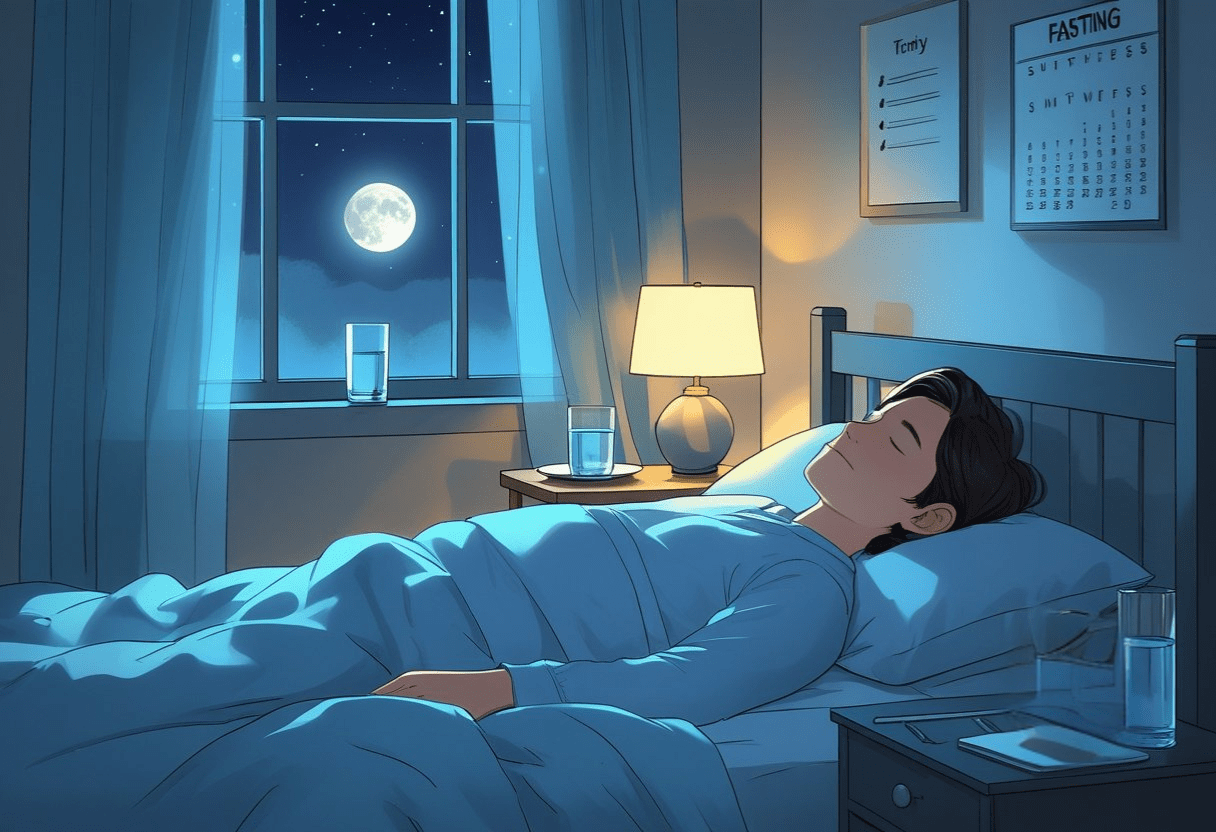
Fasting can sometimes disrupt sleep. You might struggle to fall asleep, wake up in the middle of the night, or feel hungry when you should be resting. Adjusting meal timing and daily habits can ease these issues and help you rest better while fasting.
Tips for Reducing Sleep Disturbances
Eating your last meal 2–3 hours before bed helps prevent discomfort and acid reflux, both of which can interrupt sleep. Hydration is important, but it’s best to avoid drinking large amounts of water right before bedtime so you don’t wake up to use the bathroom.
If hunger wakes you up, sipping warm herbal tea or plain water can calm the stomach without breaking your fast. Avoid caffeine in the late afternoon or evening, since it keeps the mind alert and delays sleep. Stress can also interfere with rest, so simple practices like slow breathing or light relaxation exercises before bed can help calm the body.
Sleep Hygiene for People Fasting
Good sleep habits are just as important as food timing. Going to bed around the same time every night keeps your body’s rhythm steady and supports hormones that control hunger. This makes fasting feel more manageable.
Turning off screens at least 30 minutes before bed reduces blue light, which helps melatonin levels rise so you can fall asleep faster. A quiet, cool, and dark bedroom also supports deeper rest. And if fasting leaves you tired during the day, a short nap of 20–30 minutes can refresh your energy without affecting your ability to sleep at night.
Risks and Considerations
Fasting isn’t just about weight loss. It can affect sleep too, in both good and bad ways. Some people might struggle with insomnia or disrupted sleep, while others may notice physical side effects if they fast for long periods.
Who Should Avoid Fasting for Better Sleep
Anyone with sleep problems like chronic insomnia needs to be careful with fasting. It can throw off natural sleep patterns or make it harder to fall asleep. If your schedule is already irregular, fasting may push your sleep quality down instead of helping.
People with health conditions such as diabetes, low blood pressure, or eating disorders should not fast unless a doctor is involved. The same goes for women who are pregnant or breastfeeding. Fasting in these cases can affect nutrition, raise stress levels, or cause hunger at night, all of which can make sleep worse.
Potential Negative Effects of Prolonged Fasting
Going without food for long stretches can bring headaches, dehydration, or poor focus. These side effects can make it harder to relax and fall asleep. Hunger late in the day, especially near bedtime, can also lead to restless nights.
Fasting can shift eating times too early or too late, which may confuse the body’s internal clock. This change can reduce sleep quality and increase the time it takes to drift off. While losing weight through fasting might help some people sleep better, strict or extended fasting can backfire, raising stress hormones and making sleep more difficult.
How Mattress Comfort Supports Sleep While Fasting
A good mattress affects how you rest, especially during fasting. When your body is adjusting to hunger or shifts in energy, the surface you sleep on can help reduce wake-ups and give you a chance for deeper rest. A mattress with proper support eases pressure points and helps keep your spine in line. That means less tossing at night and more time for your body to settle into real restorative sleep.
The material is important too. Layers that allow airflow or stay breathable help control heat. Since fasting can affect how your body warms or cools, a mattress that handles temperature well can keep you from sweating or overheating at night.
Here are key mattress traits to look at during fasting:
- Firmness: keeps posture steady and comfortable
- Pressure relief: reduces aches and soreness
- Breathability: balances heat and moisture
- Motion isolation: limits sleep disruption from movement
During fasting, even small discomforts can feel bigger. A mattress built with comfort in mind makes it easier to relax and fall asleep, even when you’re hungry or your schedule feels different.
One option worth checking is the Brooklyn Bedding Aurora Luxe. It’s a hybrid mattress, about 13 inches thick, with layers of foam, coils, a supportive base, and a cooling cover. It comes in soft, medium, or firm, so you can choose what fits best for you. It’s also designed with cooling in mind, with a cover that feels cool to the touch and breathable materials inside to prevent trapped heat. If staying cool is important to you while fasting, the Brooklyn Bedding Aurora Luxe is a mattress to consider alongside your other choices.

Frequently Asked Questions
Fasting can affect sleep in different ways depending on how it’s done and on each person’s body. Some people feel like they sleep better, while others may deal with hunger or have trouble falling asleep. The timing of fasting and the type of fasting both play important roles.

